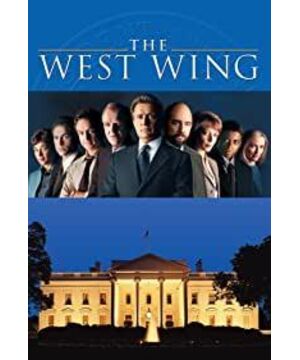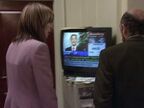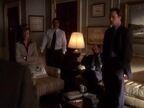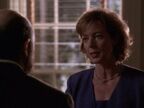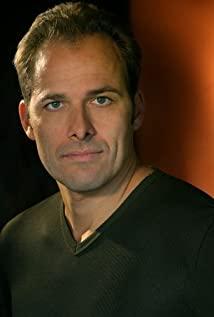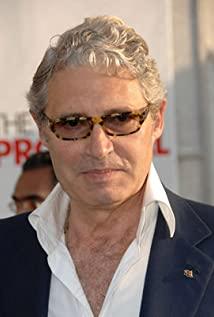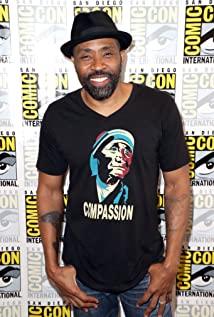Yesterday, I finished watching the fifth season of the west wing (tww). Recently, 115 network disk seems to be blocked by the school, so I have not been able to update it. I have been watching this drama almost every day in recent months, so I think it’s better to take a break for a while. At least for now, I feel that there is no passion for the beginning. Political events are basically the same, especially those expressed through mass media. They are basically similar. At the end of the fourth season, there has been a little aesthetic. Tired, and the idea of a timeout came up in the first part of the fifth season, because Sam had already left before, and Josh had made a serious mistake. These two roles are my favorite, both young and wise, full of passion, and they bring vitality to the entire team. Now that 115 has been blacklisted recently, let's take a break for now.
The first time I heard of this drama seems to be a post on everyone about watching American dramas and learning English. The lines of tww are listed as advanced English, because the elites working in the White House are all legal and political all day long. Language, and in politics, saying a wrong sentence may end the entire political career, so Sorkin shows off his talents. There is no lack of slang in tww, but the precise professional vocabulary is also quite rich. I have seen someone comment that it is precisely because of watching this drama that I am determined to engage in legal work in the future. Yes, although the elites in the West Wing are not the people who set the stage for the fate of the people of the United States and the world, they argued with all parties with sharp words, and produced various policies and regulations, which determine the lives of ordinary people. The elite's grandeur is so compelling. I thought, if I saw this show five or six years earlier, maybe I would have thrown away the beaker and glass rod, holding the Code of Hammurabi, and quoting Plato. And Aristotle, broke the opponent's argument one by one. When I think of college, love was popular at Harvard when this Korean drama was very popular. It is said that after watching it, a senior man really abandoned his reasoning and followed the law. He said to the students in the laboratory: Love at Harvard made you fall in love with Kim Tae-hee, but Makes me fall in love with the law. Later I heard that he really passed the judicial examination. In other words, although I was also full of enthusiasm for the various legal arguments in it, but like most people, I was affected by the strong love line. What I hoped more is to be a ppmm like Kim Tae-hee. It's just a touching love. Of course, maybe because I was not as majestic and speculative as the male lead, so I didn't attract any mm's fascination. It is true that my uncle said that my university failed. If I watched tww at that time, it might be another scene, haha, yy again.
tww tries to show the operation of a political background. As an aide, people who work in the West Wing cannot get on the table for many things. In fact, it is the same everywhere. The complexity of politics is far less simple than what people see on TV, but sometimes it is far simpler than the gossip trail website. After all, it is an American drama. Although all the forces in it, regardless of the White House and Congress, regardless of the Democrats and Republicans, regardless of the labor unions and consortia, are "struggling to fight" behind the stage, but the democracy on the stage is indispensable. At the beginning, the American spirit of equality and freedom was emphasized. Yes, sometimes I read it and feel that the truth is straightforward but profound: these are what a government should do to the people, but there are very few that can really do 100%. The rights of the people, the rights of its entities now on the ballot, make the government really a public service department, allowing people to feel that they serve the people and let the people be the masters of the country. Rather than being the masters of the people and letting the people serve. In "Details of Democracy", Liu Yu tried his best to show people the operation process of some democratic procedures with usual narrative techniques. He felt that Sorkin's tww was the same. Through the display of details, he told people how the White House works. In fact, pushing one and three is not only the case of the White House, but also the government of any country. The details of the decision are carefully calculated by the think tank, literally deliberated, and then handed over to the decision makers to decide and finally put into practice. Regardless of which country, the post-Taiwan careful calculations must be filled with the interests of different groups and parties. In the end, they compromise the transaction and introduce a plan that everyone feels appropriate. Otherwise, the vote will be clear. Congress vetoed it.
In fact, both the Democratic Party and the Republican Party have their own considerations in terms of national interests and the interests of voters. It is impossible to say who is completely right or completely wrong. The Democratic Party is committed to the operation of a large government and continuously strengthens and promotes the interests of voters through government forces; while the Republican Party focuses on reducing the government's public power and allowing the free development of economic society. There is a very interesting sentence in tww, which is aimed at US military operations overseas: The Democratic Party is committed to reducing the military scale, but hopes to send the army to any corner of the world; Although the Republican Party hopes to increase the military scale, it tries to send the army to a certain extent. Reduce. Nevertheless, both are based on the interests of U.S. voters, and they just look at the problem from a different perspective.
Okay, let's remember so much for the time being. When I have time, I will finish watching the remaining two seasons. If I still have passion, I might summarize it again.
View more about The West Wing reviews


